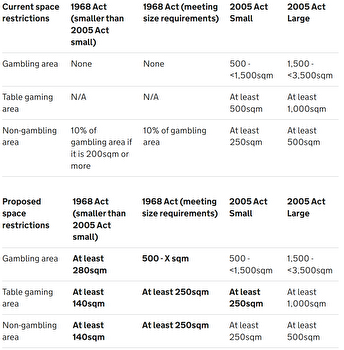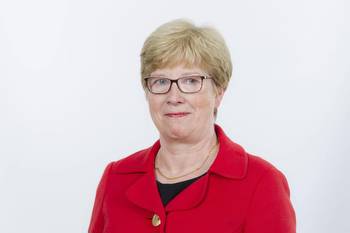DCMS Consultation on proposals for a maximum stake limit for online slots games
On 26 July 2023, the Department for Culture, Media and Sport (DCMS) published its public consultation which proposes potential stake limits for online slot games. This Consultation directly followed on from the Gambling White Paper published in April 2023, which set out the government’s plans for modernising the regulation of gambling in Great Britain.
The DCMS consultation on stake limits for online slots games represents a significant step in the UK government's efforts to modernise gambling regulations and protect vulnerable individuals from gambling-related harm. The proposed stake limits and additional protections for young adults aim to strike a balance between preserving individual freedoms and preventing harm.
Concurrently with the Consultation, the DCMS published a consultation looking at land based gambling, and the Gambling Commission (GC) published their first set of consultations on the White Paper, which cover: improving consumer choice on direct marketing; strengthening age verification in premises; remote game design; and financial vulnerability and financial risk.
Case and Context for a Stake Limit Per Spin
Online slot games are a major contributor to operator profits in the UK. According to the Gambling Commission’s industry statistics, in the 2021/2022 financial year they accounted for over £3 billion of the industry’s Gross Gambling Yield (GGY), surpassing the GGY of online sports betting. While participation data is limited, it is evident that online slots generate substantial revenue, making them one of the highest average loss per customer gambling products.
Furthermore, online slots are associated with certain characteristics that can elevate the risk of gambling-related harm, with the White Paper citing:
- Long Sessions: Over 70% of gaming sessions lasting over three hours are on slots, indicating that players tend to engage in extended gameplay sessions.
- Binge Activity: A significant proportion of past-month gamblers who reported binge gambling did so on online slots, making it the most common gambling activity associated with binge behaviour.
- Treatment for Gambling Problems: Online slots are the most commonly used product among patients seeking treatment through the National Gambling Treatment Service, further highlighting their association with harm. These include long gaming sessions, binge gambling activity, and engagement by individuals seeking support for gambling-related issues. According to the DCMS consultation, the “general weight of evidence justifies government action” addressing these structural characteristics, such as the potential for high losses in a short period, which is “likely a key driver of gambling-related harm”.
In response to these concerns, the government has proposed stake limits for online slots games, aiming to reduce the risk of rapid and substantial losses that contribute to gambling-related harm.
In addition to examining the policy options discussed below, the consultation also seeks input on various aspects crucial for the successful execution of the policy. This includes clarifying the definitions of “online slots games,” “maximum stake,” and “spin/game cycle.”
The Options
The consultation outlines four policy options for stake limits for all adults (although note different proposals for young adults set out in the following section).
Option 1 - A maximum online slots stake limit of £2 per spin
As the most stringent option proposed, the DCMS has stated that the £2 maximum stake limit for online slots would significantly affect both gambling businesses and consumers. Although around 97% of individual online slot bets are already below this threshold, industry data suggests that as many as 35% of online slot players wager over £2 on at least one spin annually, contributing an estimated 18% of the total GGY from slots. This option aligns online slot limits with those for B3 gaming machines in physical gambling establishments, although it's important to note that these machines come with broader monitoring and player intervention requirements.
Option 2 - A maximum online slots stake limit of £5 per spin.
Option 2 suggests a maximum stake of £5 per spin for online slots, in line with the limit for B1 gaming machines in casinos – the highest allowed for any land-based gaming machine. While bets exceeding £5 constitute slightly over 0.5% of all online slot bets, they contribute approximately 7.4% of the total GGY generated by slots. Operator-reported data varies, indicating that between 8% and 23% of players currently wager over £5 on at least one spin annually. While this option would have a less severe impact on businesses and consumers compared to the £2 stake limit, its potential consequences should not be underestimated.
Option 3 - A maximum online slots stake limit of £10 per spin.
Option 3 considers a maximum stake limit of £10 per spin, considering the unique features of online account-based play and the associated player protections that are challenging to replicate in land-based gambling venues. While aligning online slot stake limits with land-based gaming machines (as in Options 1 or 2) may seem straightforward, the differences in player monitoring capabilities between online and land-based gambling make a strong argument for a higher online stake limit. DCMS data suggests that the majority of slots players rarely stake at £10 or above in a year , meaning disruptions to their gambling habits are likely to be minimal.. According to DCMS data, bets exceeding £10 contribute approximately 2.6% of the total GGY generated by slots.
Option 4 - A maximum online slots stake limit of £15 per spin
Option 4 proposes the highest stake limit of £15 per spin, resulting in minimal changes to current player behaviour and having the least impact on operator GGY. Stakes exceeding £15 account for only 0.05% of all online slot bets and contribute approximately 2% of the total GGY. However, the consultation document acknowledges that while high stakes themselves may not inherently lead to harm, there is an overrepresentation of high-risk customers among high-staking players in the data. Given the DCMS's rationale for introducing stake limits and the minimal impact highlighted in the consultation document, it seems unlikely that this option will be adopted.
The Scope of Limits
To implement the maximum stake limit, the government intends to use its power under Section 78 of the Gambling Act 2005 to attach new conditions to remote casino operating licences. Defining the scope of the limit is essential, as there is no statutory definition for most sub-types of gaming in the Act.
For the purposes of the consultation, online slots are described as remote casino games of a reel-based type, including those with non-traditional reels or a combination of slot game elements with other game mechanics. This definition aligns with the Gambling Commission's standards, ensuring consistency in regulatory measures.
The government does not plan to introduce maximum stake limits for online games other than online slots. This decision is based on differences in spin speeds, other structural controls, and less clear evidence of associated harm. Likewise, maximum prize limits for online slots will not be implemented, as the focus is on reducing high-stake risks rather than prize-related harm.
Considerations and policy options for protecting young adults using online slots
Given evidence suggesting that young adults, specifically those aged 18 to 24, may constitute a particularly vulnerable demographic, the white paper has committed to seeking additional, slot-specific safeguards for this group, along with lower thresholds for financial risk assessments. This extends the existing protections for young adults that some operators have already implemented but which lack consistency across the sector. Notably, the Public Health England Gambling-related harms evidence review found a problem gambling rate of 0.8% within the 16 to 24 age group, coupled with the highest average Problem Gambling Severity Index (PGSI) score (0.26) among all age groups.
On this basis, alongside the product specific risks identified for all ages, the DCMS considers that there is a strong case for slot-specific measures for this age group. The consultation presents three options for additional protections for 18 to 24-year-olds.
Option 1 - A maximum online slots stake limit of £2 per spin for 18 to 24-year-olds
This option is expected to be less disruptive than if it were a general limit, given that evidence from the DCMS indicates that individuals in this age group tend to wager less compared to other demographics. Nevertheless, it remains the most potentially disruptive choice among the options under consideration.
Option 2 - A maximum online slots stake limit of £4 per spin for 18 to 24-year-olds
This exceeds the £2 limit set for B2/B3 gaming machines, with the rationale being that the online environment offers additional safeguards, including enhanced financial risk checks, which could provide better protection compared to anonymous land-based play. However, it remains lower than the £5 limit for B3 machines in land-based casinos, which is available to all individuals aged 18 and above.
Option 3 - Not introducing a specific statutory stake limit for 18 to 24-year-olds but requiring operators to consider age as a risk factor for gambling-related harm, allowing for case-by-case mitigations
This option is the least disruptive for both operators and customers, built on the principle that operators should take a customer's age into account when assessing vulnerabilities. It allows operators to limit the stakes of customers deemed at risk, thereby expanding the measures available to operators to promote responsible gambling.
Impacts and Potential Responses
The introduction of stake limits for online slots games will undoubtedly have an impact on the gambling industry and individuals' gambling behaviour. Potential consequences of the stake limits could include:
- Slots Play Adjustment: Some players may choose to adjust their gameplay by playing more spins at lower stake levels.
- Displacement to Other Products: Players may switch to other gambling products such as roulette if the appeal of online slots diminishes due to stake limits.
- Displacement to the Black Market: There is a risk that players unable to access desired stakes in the licensed sector may turn to unlicensed providers, thus increasing their exposure to potential harm.
- Spending Less Overall: Some individuals may moderate their gambling behaviour in response to the stake limits, resulting in reduced overall spending.
Next Steps
The Consultation was open for 8 weeks, closing at 11:55pm on 4 October 2023. Following the closure of the Consultation, the government will now publish a formal response to set out their decision and reasoning before implementing the changes. The government plans to announce its decision later in the year, with the new licence condition expected to take effect in early 2024. Operators will be given a minimum of 6 weeks to transition to the new rules.
Article co-authored by Bronagh Miller, Trainee Solicitor at CMS.

































